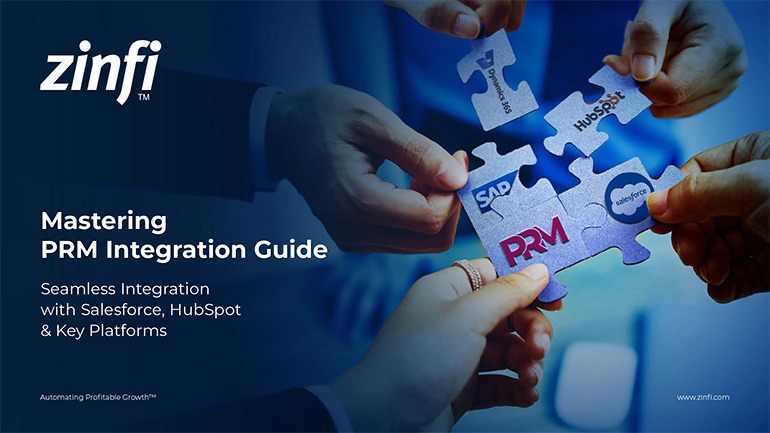Glossary - How to - Affiliate Marketing Software
How to Choose the Best Affiliate Marketing Software?
Introduction
Affiliate marketing software is a tool designed to help businesses manage their affiliate programs by tracking referrals, commissions, and performance metrics. This type of software is essential for companies looking to scale their partner marketing efforts efficiently. It automates crucial processes such as tracking clicks, sales, and payouts, allowing businesses to maximize their return on investment (ROI) from affiliate partnerships.
In Partner Relationship Management (PRM), affiliate marketing software is crucial by providing a centralized platform to manage affiliate relationships. Businesses can create structured affiliate programs that drive consistent revenue by integrating automation, analytics, and commission tracking. PRM solutions help streamline this process, ensuring partners remain engaged and motivated.
Key Takeaways:
Understanding Your Business Needs:
Before selecting affiliate marketing software, businesses must assess their specific needs. Key considerations include:
- Business Size and Scale: Small businesses may require simple tracking tools, while enterprises need advanced automation.
- Integration Requirements: The software should integrate seamlessly with existing CRM, eCommerce, and payment systems.
- Customization Capabilities: Businesses should be able to configure commission structures, branding, and reporting features.
Essential Features of Affiliate Marketing Software:
When evaluating affiliate marketing software, the following features are essential:
- Real-time Tracking: Ensures accurate measurement of clicks, conversions, and commissions.
- Automated Payments: Streamlines commission payouts through integrated payment gateways.
- Fraud Prevention Tools: Protects against invalid traffic and fraudulent transactions.
- Multi-tier Commissions: Allows businesses to set up hierarchical commission structures.
- Comprehensive Reporting: Provides insights into affiliate performance, sales trends, and ROI.
Comparing Top Affiliate Marketing Software:
Businesses should compare software options based on their specific requirements. Some of the leading solutions include:
- ZINFI’s PRM Platform: Offers end-to-end partner and affiliate management.
- Post Affiliate Pro: Known for its tracking capabilities and integrations.
- Refersion: Popular among eCommerce brands for its ease of use.
- Impact.com: A robust platform for influencer and affiliate partnerships.
Implementation Best Practices:
To ensure smooth software implementation:
- Set Clear Objectives: Define goals such as increasing traffic, boosting sales, or expanding partnerships.
- Onboard Affiliates Effectively: Provide training materials, promotional assets, and clear commission guidelines.
- Monitor Performance Regularly: Use analytics to optimize affiliate engagement and ROI.
Security and Compliance Considerations:
Affiliate marketing involves handling sensitive data, making security a top priority. Best practices include:
- GDPR and CCPA Compliance: Ensure the software is according to global data protection regulations.
- Secure Payment Processing: Use encrypted transactions to safeguard financial information.
- Fraud Detection Mechanisms: Implement AI-driven fraud prevention tools to detect suspicious activities.
Summary of Key Takeaways:
- Identify business needs before selecting affiliate marketing software.
- Choose software with essential features like real-time tracking, automation, and fraud prevention.
- Compare top platforms based on functionality, pricing, and scalability.
- Implement best practices for onboarding and performance monitoring.
- Ensure security and compliance to protect sensitive affiliate and customer data.
Key Examples:
- Automotive Manufacturing: Car manufacturers use affiliate marketing software to promote dealership partnerships, offering incentives for leads that convert into sales.
- Consumer Electronics: Affiliate programs help brands track influencers and tech bloggers who drive traffic to product pages.
- Energy Production: Renewable energy firms use affiliate software to manage referral programs for solar panel installations.
- Financial Services: Banks and financial institutions leverage affiliate platforms to track referrals for credit cards, loans, and investment accounts.
- Food and Beverage: Restaurants and food delivery services partner with bloggers and influencers to increase online orders through affiliate links.
- Healthcare Services: Pharmaceutical companies and telehealth services use affiliate programs to expand patient outreach.
- Information Technology: Software companies use affiliate tracking to measure sales driven by IT consultants and tech influencers.
- Pharmaceutical Development: Affiliate marketing helps pharmaceutical brands reach healthcare professionals who recommend their products.
- Retail Industry: E-commerce platforms use affiliate software to track sales generated by influencers and bloggers.
- Telecommunications: Telecom companies use affiliate tracking to measure customer acquisitions through referral programs.
Conclusion:
Selecting the right affiliate marketing software is crucial for businesses looking to scale their affiliate programs efficiently. Organizations can optimize their partner marketing strategies by understanding business needs, comparing top solutions, and implementing best practices. As affiliate marketing continues to evolve, leveraging the right tools ensures sustained growth and profitability in the competitive digital marketplace.
Associated Keywords:















